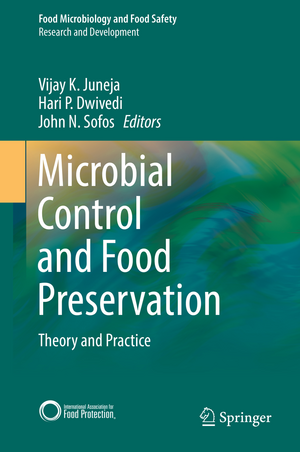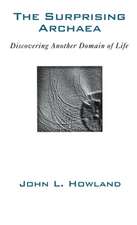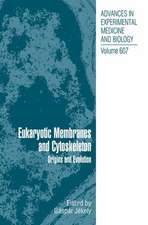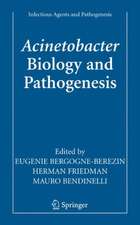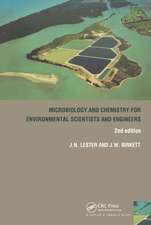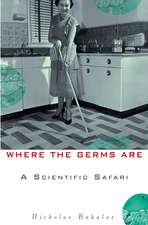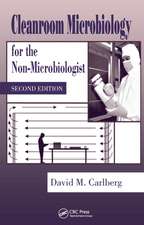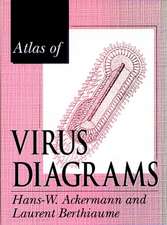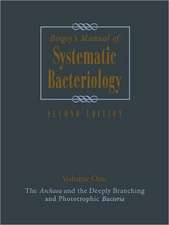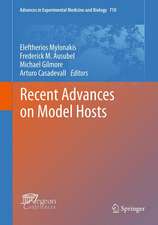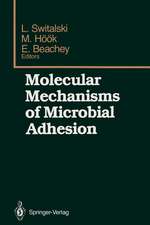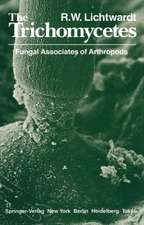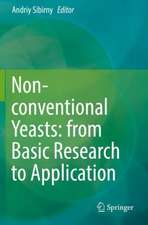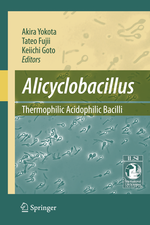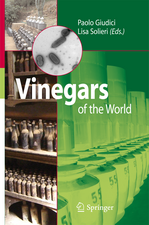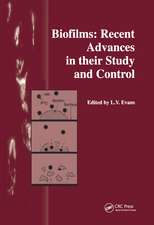Microbial Control and Food Preservation: Theory and Practice: Food Microbiology and Food Safety
Editat de Vijay K. Juneja, Hari P. Dwivedi, John N. Sofosen Limba Engleză Hardback – 24 ian 2018
| Toate formatele și edițiile | Preț | Express |
|---|---|---|
| Paperback (1) | 819.35 lei 38-44 zile | |
| Springer – 4 iun 2019 | 819.35 lei 38-44 zile | |
| Hardback (1) | 1396.43 lei 3-5 săpt. | |
| Springer – 24 ian 2018 | 1396.43 lei 3-5 săpt. |
Din seria Food Microbiology and Food Safety
- 20%
 Preț: 565.92 lei
Preț: 565.92 lei - 18%
 Preț: 1244.89 lei
Preț: 1244.89 lei - 15%
 Preț: 639.73 lei
Preț: 639.73 lei - 18%
 Preț: 785.86 lei
Preț: 785.86 lei - 15%
 Preț: 709.44 lei
Preț: 709.44 lei - 18%
 Preț: 951.29 lei
Preț: 951.29 lei - 18%
 Preț: 1118.75 lei
Preț: 1118.75 lei -
 Preț: 389.70 lei
Preț: 389.70 lei - 5%
 Preț: 398.11 lei
Preț: 398.11 lei - 15%
 Preț: 633.68 lei
Preț: 633.68 lei - 18%
 Preț: 1384.26 lei
Preț: 1384.26 lei - 18%
 Preț: 1486.83 lei
Preț: 1486.83 lei - 23%
 Preț: 906.42 lei
Preț: 906.42 lei -
 Preț: 389.88 lei
Preț: 389.88 lei - 18%
 Preț: 782.87 lei
Preț: 782.87 lei - 18%
 Preț: 1111.97 lei
Preț: 1111.97 lei - 15%
 Preț: 645.28 lei
Preț: 645.28 lei - 18%
 Preț: 722.58 lei
Preț: 722.58 lei - 18%
 Preț: 722.43 lei
Preț: 722.43 lei - 15%
 Preț: 712.05 lei
Preț: 712.05 lei - 18%
 Preț: 892.42 lei
Preț: 892.42 lei - 18%
 Preț: 1107.73 lei
Preț: 1107.73 lei - 15%
 Preț: 471.53 lei
Preț: 471.53 lei - 18%
 Preț: 1228.29 lei
Preț: 1228.29 lei - 18%
 Preț: 1236.51 lei
Preț: 1236.51 lei - 18%
 Preț: 1388.68 lei
Preț: 1388.68 lei - 5%
 Preț: 718.65 lei
Preț: 718.65 lei - 18%
 Preț: 1217.41 lei
Preț: 1217.41 lei - 18%
 Preț: 1386.92 lei
Preț: 1386.92 lei - 18%
 Preț: 747.71 lei
Preț: 747.71 lei
Preț: 1396.43 lei
Preț vechi: 1702.96 lei
-18% Nou
Puncte Express: 2095
Preț estimativ în valută:
267.26€ • 277.94$ • 223.65£
267.26€ • 277.94$ • 223.65£
Carte disponibilă
Livrare economică 22 februarie-08 martie
Preluare comenzi: 021 569.72.76
Specificații
ISBN-13: 9781493975549
ISBN-10: 1493975544
Pagini: 462
Ilustrații: XII, 430 p. 37 illus., 10 illus. in color.
Dimensiuni: 155 x 235 mm
Greutate: 0.89 kg
Ediția:1st ed. 2017
Editura: Springer
Colecția Springer
Seriile Food Microbiology and Food Safety, Research and Development
Locul publicării:New York, NY, United States
ISBN-10: 1493975544
Pagini: 462
Ilustrații: XII, 430 p. 37 illus., 10 illus. in color.
Dimensiuni: 155 x 235 mm
Greutate: 0.89 kg
Ediția:1st ed. 2017
Editura: Springer
Colecția Springer
Seriile Food Microbiology and Food Safety, Research and Development
Locul publicării:New York, NY, United States
Cuprins
Food Preservation and Safety.- Principles of Food Preservation.- Application of Omics Technologies and Computational Approaches for Control of Foodborne Pathogens in Foods.- Natural Food Antimicrobials of Animal Origin.- Natural Food Antimicrobials of Plant Origin .- Natural Food Antimicrobials of Microbial Origin.- Antimicrobial Peptides and Polyphenols: Implications in Food Safety and Preservation.- Delivery Systems for Introduction of Natural Antimicrobials into Foods.- Microbial Resistance to Antimicrobials.- Interventions for Fresh Produce.- Preservation Methods for Meat and Poultry.- Microbial Control of Milk and Milk Products.- Microbial Fermentation in Food Preservation.- Non Thermal Methods for Food Preservation.- Antimicrobial Gases for Food Application.- Current State of the Art and Recent Innovations for Antimicrobial Food Packaging.- Consumer Perception of Food Preservation Techniques.- Statistical Derivation of Sampling Plans for Microbiological Testing of Foods.- Antimicrobials and Food Preservation: A Risk Assessment Approach.
Notă biografică
Dr. Vijay K. Juneja is a Lead Scientist (Microbiologist, GS-15) of a research project on Predictive Microbiology at the Eastern Regional Research Center, ARS, USDA, Wyndmoor, PA, USA. He has developed a nationally and internationally recognized research program on foodborne pathogens, with emphasis on microbiological safety of minimally processed foods and predictive microbiology. His research program has been highly productive, generating over 170 peer-reviewed journal articles, 45 book chapters and he is a co-editor of eight books. Currently, Dr. Juneja serves as an Editor of ‘LWT-Food Science and Technology’. He served as a co-editor of ‘International Journal of Food Microbiology’ until December 2011 and as an Associate Editor for the ‘Food Microbiology Section’, of the Journal of Food Science from 2002 - 2007. A certified Food Scientist (2013), Dr. Juneja is a Fellow of the IFT (2008); American Academy of Microbiology (2013); and IAFP (2017).
John N. Sofos is a University Distinguished Professor Emeritus of Colorado State University. He retired in 2015, after serving on 103 graduate committees and working with 38 Scholars. He taught Food Processing, Food Microbiology, etc. Research interests included ecology, detection, resistance and control of bacterial pathogens. He authored 324 papers, 10 books, 72 book chapters, 462 abstracts, 380 miscellaneous publications, and 210 invited lectures worldwide. He was elected Fellow of five scientific societies and received awards from the International Association for Food Protection, the American Meat Science Association, the Institute of Food Technologists, etc. He served as Editor of he Journal of Food Protection for 18 years, as chair of the Biological Hazards Panel of the European Food Safety Authority, and President of the Council of the Agricultural University of Athens, Greece.
Before his current position as Sr. Manager, Clinical Affairs at bioMerieux, Inc. in Hazelwood, MO, Hari Dwivedi was a US R&D Food Manager supporting the research and development activities on microbial quality indicators and pathogen detection in food. Hari is a veterinarian by training and did his PhD at North Carolina State University while working on the molecular methods for foodborne pathogen detection. Hari is an active member of International Association for Food Protection (IAFP), where he most recently served as the Chair of the Applied Laboratory Methods Professional Development Group. Hari is also a current member of the Food Safety & Technology Council of United Fresh and a past member of the executive committee of Indian Society for Veterinary Medicine (ISVM). He serves as a member of the Editorial Board of International Journal of Food Microbiology and Food Protection Trends.
Textul de pe ultima copertă
This edited volume provides up-to-date information on recent advancements made in the field of food preservation to enhance microbiological safety and quality. Chapters from experts in the field cover new and emerging alternative food preservation techniques and highlight their potential applications in food processing. A variety of different natural antimicrobials are discussed, including their source, isolation, industrial applications, and the dosage needed for use as food preservatives. In addition, the efficacy of each type of antimicrobial, used alone or in combination with other food preservation methods, is considered. Factors that limit the use of antimicrobials as food preservatives, such as moisture, temperature, and the ingredients comprising foods, are also discussed. Finally, consumer perspectives related to the acceptance of various preservation approaches for processed foods are described.
Caracteristici
Discusses the efficacy of various natural food preservation techniques Highlights the potential of current and emerging preservation methods Addresses the need for alternative food preservation techniques and antimicrobials?
